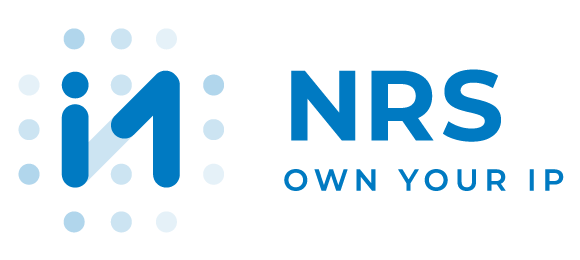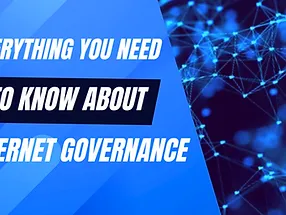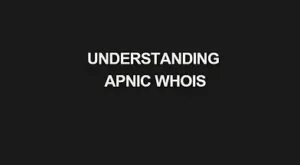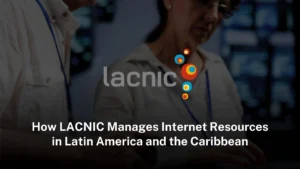Internet governance is a vast and multifaceted concept that encompasses a wide range of issues related to the management and regulation of the internet. It involves policies, rules, and procedures that determine how the internet is operated and managed, including the allocation of domain names and IP addresses, regulation of online content, cybersecurity, and the promotion of universal access to the internet.
We can all agree that the internet has become an essential part of our lives, and its importance cannot be overstated. It has transformed the way we communicate, access information, and conduct business. However, the decentralized and global nature of the internet makes it difficult to regulate and govern effectively.
One of the key organizations responsible for Internet governance is the Internet Corporation for Assigned Names and Numbers (ICANN). ICANN is a non-profit organization that coordinates the allocation of domain names and IP addresses. It is responsible for managing the domain name system (DNS), which is the backbone of the internet’s addressing system.
The history of Internet governance dates back to the early days of the internet when it was still an experimental project of the US Department of Defense. In the 1980s, the National Science Foundation (NSF) took over the management of the internet’s backbone and began to develop a system of domain names and IP addresses. However, as the internet expanded globally, it became clear that a more inclusive and collaborative governance model was needed to ensure the stable and secure operation of the internet.
In the mid-1990s, the US government created a task force to develop a new governance model for the internet. This task force led to the formation of ICANN in 1998, which was tasked with overseeing the DNS and managing the allocation of domain names and IP addresses.
The role of ICANN has evolved over time, and today it plays a critical role in shaping the future of the internet. One of the most significant challenges facing Internet governance is the issue of digital divide. While the internet has brought tremendous benefits to many people around the world, there are still millions of people who lack access to the internet. Bridging this digital divide requires a coordinated effort from governments, international organizations, and the private sector.
Recent Years
In recent years, there has been increasing concern about the concentration of power in the hands of a few dominant tech companies. These companies control vast amounts of personal data and have significant influence over online discourse. Ensuring that these companies are held accountable and operate in the public interest is an essential part of Internet governance.
Another issue facing Internet governance is the regulation of online content. With the rise of social media and user-generated content, there has been a growing concern about the spread of misinformation, hate speech, and other harmful content online. Governments and civil society groups have been grappling with how to address these issues without infringing on free speech rights.
One solution that has been proposed is the development of a global code of conduct for online content. Such a code would establish standards for online content, including the removal of harmful and illegal content. However, there are significant challenges to developing such a code, including concerns about censorship and the difficulties of enforcing such a code across different jurisdictions.
Cybersecurity is another critical issue facing Internet governance. The internet has become a prime target for cybercriminals, who seek to steal personal data, disrupt services, and launch cyberattacks. Governments and the private sector have invested significant resources in developing cybersecurity measures to protect against these threats. However, the rapid pace of technological change means that new threats are constantly emerging, and cybersecurity measures must be continually updated to keep pace.
Internet governance also involves issues related to privacy and data protection. The internet has transformed the way we share and store personal information, raising concerns about how this information is used and who has access to it. Governments and the private sector have a responsibility to ensure that personal data is protected, and that individuals have control over their own data.
The European Union’s General Data Protection Regulation (GDPR) is an example of a legal framework designed to protect personal data. The GDPR establishes strict rules for the collection, processing, and storage of personal data, and provides individuals with the right to control their own data. The GDPR has been hailed as a significant step forward in protecting online privacy, but its implementation has also faced challenges.
Internet governance also involves issues related to intellectual property and copyright. The internet has made it easier than ever to share and distribute digital content, but it has also raised questions about how to protect the rights of content creators. Governments and international organizations have developed legal frameworks and agreements to address these issues, including the World Intellectual Property Organization (WIPO) and the Agreement on Trade-Related Aspects of Intellectual Property Rights (TRIPS).
However, the rapid pace of technological change has made it challenging to keep pace with these issues. For example, the rise of peer-to-peer file sharing and streaming services has disrupted traditional models of distribution and raised questions about the future of copyright law.
E-Commerce and Online Transactions
Another important aspect of Internet governance is the regulation of e-commerce and online transactions. The growth of e-commerce has transformed the way we buy and sell goods and services, but it has also raised concerns about consumer protection, cybersecurity, and tax evasion. Governments and international organizations have developed legal frameworks and agreements to address these issues, including the World Trade Organization’s (WTO) Agreement on Trade Facilitation and the United Nations Commission on International Trade Law’s (UNCITRAL) Model Law on Electronic Commerce



